As a BetterHelp affiliate, we receive compensation from BetterHelp if you purchase products or services through the links provided
Getting adequate sleep is essential for maintaining good health and well-being. When you sleep well, your body can heal and rejuvenate, leading to increased energy levels and a clearer mind during your waking hours. Sleep is not just about the total hours you spend in bed; it’s about the quality of those hours. Establishing a regular sleep routine and creating an environment conducive to rest can significantly improve your physical and mental health.
Recognizing the signs of sleep disorders and understanding the factors that affect your sleep are crucial. These can range from your daily habits and lifestyle choices to stress and environmental factors. Knowing what can disrupt your sleep allows you to take proactive steps to mitigate those factors. For instance, managing disruptions such as noise and light and being mindful of your diet and exercise can play a pivotal role in enhancing the quality of your slumber. Moreover, knowing how sleep patterns change over your lifespan can help you adjust your habits as needed.
Incorporating sleep aids and remedies may be beneficial, but choosing these carefully is essential. A wide range of sleep-inducing products and techniques exists, from white noise machines to guided meditations. However, seeking advice before trying new methods is always best, especially if sleep disturbances persist. Remember, addressing sleep issues isn’t just about combating tiredness; it’s about improving your overall health and making the most of your days.
Key Takeaways
- Sleep is not only about quantity but quality; good sleep is foundational for your overall health.
- Understanding what disrupts your sleep and adjusting your habits can improve sleep quality.
- Seeking professional advice is advisable when sleep remedies are considered or if sleep issues are ongoing.
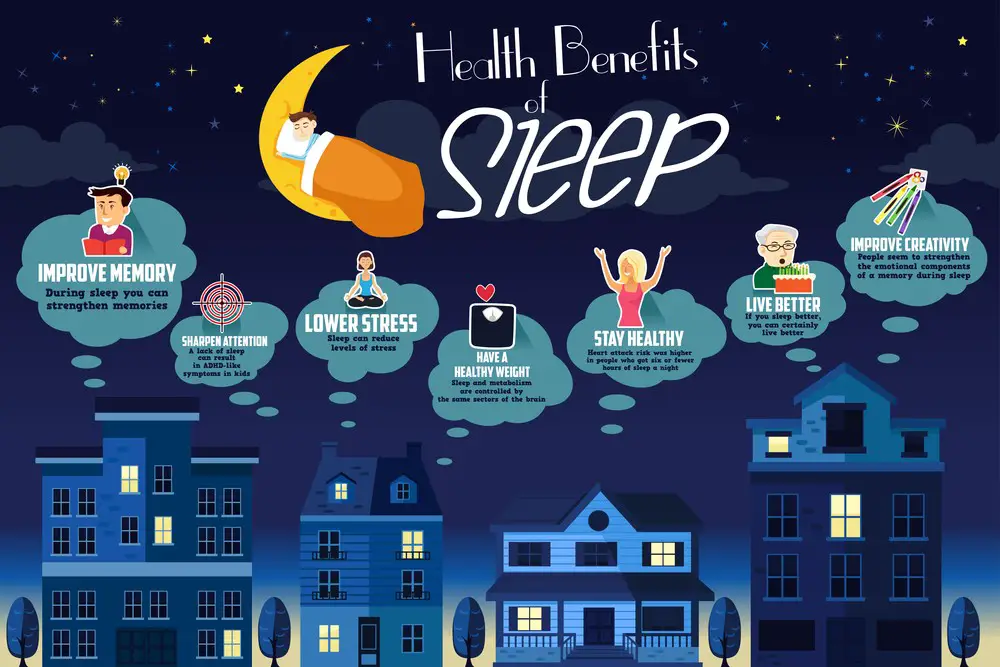
Understanding Sleep
Quality sleep is essential for your well-being, involving complex processes that rejuvenate your body and mind. Let’s break down the sleep experience to better understand how to achieve a restful night.
Stages of Sleep
Your sleep cycle includes several stages, each crucial for optimal health:
- Stage 1: This is the lightest stage of sleep, a transition phase where you drift in and out of sleep quickly.
- Stage 2: Your brain begins to slow down, with occasional bursts of electrical activity known as sleep spindles.
- REM Sleep: Short for Rapid Eye Movement, this phase is where dreaming occurs and your brain activity resurfaces, closely resembling wakefulness.
Each night, you cycle through these stages multiple times. Achieving a balanced cycle is crucial to feeling rested.
 Circadian Rhythm
Circadian Rhythm
Your internal biological clock, or circadian rhythm, dictates when you feel alert and sleepy over 24 hours. External cues like light and temperature influence it. Aligning your sleep to this natural rhythm can enhance sleep quality.
- Stick to a regular sleep schedule to maintain a stable rhythm.
- Exposure to natural light during the day and reduce blue light exposure in the evening.
Key Takeaway: Understanding the stages of sleep and aligning with your circadian rhythm can help you create a conducive environment for restful sleep.
 Importance of Sleep Quality
Importance of Sleep Quality
Getting a good night’s sleep is more than just the total hours of rest. It’s about the quality of sleep that allows your body and mind to rejuvenate truly.
Impact on Health
Your health hinges on sleep quality much more than you might think. Regular poor sleep puts you at risk of severe medical conditions, including obesity, heart disease, and diabetes – and it shortens your life expectancy.
- Strengthened Immune System: A solid rest allows your immune cells and proteins to recuperate, fighting off illnesses more effectively.
- Weight Management: Higher sleep quality is linked to balanced hormone levels that control appetite and may help prevent weight gain.
Key Takeaway: Prioritize your sleep to safeguard your health; it’s essential for your body’s defenses and maintaining a healthy weight.
Cognitive Function and Mood
The interplay between sleep quality and your brain’s functions is intricate. Neglecting rest can lead to a slump in cognitive abilities and mood swings.
- Concentration and Productivity: Sleep is critical for various aspects of brain function, including cognition, concentration, productivity, and performance.
- Emotional Wellbeing: Adequate rest positively affects your mood and can reduce the risk of developing mood disorders.
Key Takeaway: Quality sleep should be non-negotiable to keep your mind sharp and spirit uplifted.
Recognizing Sleep Disorders
Getting quality sleep is crucial for your overall health, but sometimes, despite your best efforts, you might experience issues. Here, you’ll discover how to recognize sleep disorders and understand their underlying factors.
Symptoms and Causes
Symptoms:
- Difficulty falling or staying asleep
- Excessive daytime sleepiness
- Loud snoring accompanied by pauses in breathing
- Morning headaches
- Difficulty concentrating during the day
Causes:
- Stress and anxiety can lead to insomnia.
- Obesity often contributes to sleep apnea.
- Genetics plays a role in several sleep disorders.
- Poor sleep habits and irregular sleep schedules can trigger sleep issues.
Key Takeaway: If you recognize these symptoms persistently disrupting your sleep, it’s time to consult a healthcare professional.
 Common Disorders
Common Disorders
Insomnia:
- It involves trouble falling or staying asleep.
- Causes include stress, anxiety, medications, and caffeine.
Sleep Apnea:
- Characterized by pauses in breathing during sleep.
- Often associated with chronic snoring and daytime fatigue.
Restless Leg Syndrome (RLS):
- Causes uncomfortable sensations and an urge to move the legs.
Narcolepsy:
- Results in overwhelming daytime drowsiness and sudden sleep attacks.
Remember, identifying the disorder you’re dealing with is the first step to better sleep and well-being. If you’re experiencing signs of a sleep disorder, it’s essential to address them proactively.
 Factors Affecting Sleep
Factors Affecting Sleep
Getting enough restful sleep pivots on various elements you might not always consider. Each aspect plays a part, from what you eat and drink to how much you move during the day. Additionally, the space where you sleep—the temperature and comfort level—directly impacts how well you can switch off for the night.
Diet and Hydration
What you consume can greatly influence your sleep quality. Foods and drinks high in caffeine, like coffee or certain sodas, can keep you buzzing for hours after consumption. In contrast, a balanced diet with an emphasis on:
- Whole grains
- Lean proteins
- Fruits and vegetables
- Healthy fats
…can promote steadier energy levels and improve your sleep cycle. Remember to stay hydrated, but limit fluids before bed to minimize nighttime disruptions.
Key Takeaway: Opt for a balanced diet without stimulants near bedtime to foster better sleep.
Physical Activity
Regular exercise can help you fall asleep faster and deepen your sleep. Just be sure not to work too close to bedtime, as this can energize you when you need to wind down. Strive for at least 30 minutes of moderate aerobic activity most days, but keep it a good few hours before hitting the hay. For even better results, mix it up with:
- Brisk walking
- Swimming
- Cycling
- Yoga
Each activity has perks for your sleep quality, so find a routine you enjoy and stick to it!
Key Takeaway: Consistent, appropriately timed exercise is a boon for sound slumber.
Environment
Your bedroom should be a sanctuary designed for sleep. Aim to keep the room temperature between 60 to 67 degrees Fahrenheit (15.6 to 19.4 degrees Celsius) for optimal comfort. Here are some room setup tips that could nudge you into dreamland:
- Lighting: Use dim or warm lights as bedtime approaches.
- Noise: Keep it down. White noise machines or earplugs could be a game-changer.
- Comfort: Invest in a good mattress and pillows that support your sleep style.
Lastly, make your bedroom an electronic-free zone if possible. The less buzz and blue light, the better you’ll rest.
Key Takeaway: Personalize your sleep environment to be calm, quiet, and cozy for the best snooze.
 Creating a Sleep-Inducing Routine
Creating a Sleep-Inducing Routine
Crafting a nightly ritual can be a game-changer for your sleep quality. It’s about finding what soothes you into a state of restfulness and keeping to it. Let’s break down some specific steps you can take.
Relaxation Techniques
To transition into sleep mode, you can incorporate a few relaxation techniques. Giving your mind and body cues that it’s time to wind down can help you fall asleep faster.
- Deep Breathing: Start with deep belly breaths — inhale for four counts, hold for seven, and exhale for eight. This can slow down your heart rate and reduce anxiety.
- Progressive Muscle Relaxation: Tense each muscle group for a few seconds, then release. Work your way up from your toes to your head.
Key Takeaway: Engage in a few calming activities before bed to signal your body that it’s time to rest.
Bedtime Habits
Your nighttime activities can significantly impact how well you sleep. Creating a routine conducive to catching those crucial Z’s is essential.
- Create a Consistent Schedule: Stick to the same bedtime and wake-up time, even on weekends.
- Optimize Your Sleep Environment: Keep your bedroom dark, cool, and quiet. A temperature around 65°F (18°C) is ideal for sleep.
- Limit Screen Time: Put away electronic devices at least an hour before bed to minimize exposure to blue light, which can disrupt your natural sleep cycle.
Key Takeaway: Consistency and a conducive environment are the foundations of a solid bedtime routine.
Managing Disruptions
When you’re trying to catch some z’s but find yourself wide awake, disruptions like stress and the glow from your phone can be the culprits. Getting these under control can make a world of difference to your sleep quality.
 Stress and Anxiety
Stress and Anxiety
Feeling jittery or wound up can turn your bed into a battlefield where sleep is the enemy, not the ally. Here are a few targeted tips for you:
- Create a bedtime ritual: Consistency is your friend. Set a wind-down routine and stick to it.
- Journal your worries: Sometimes, penning down thoughts can lessen the mental load.
Key takeaway: Establishing a calming routine can signal to your body that it’s time to power down for the night.
Electronic Devices and Light
You might not notice it, but your beloved screens can be sabotage agents for your slumber. Let’s see what you can do:
- Set a screen curfew: Aim to turn off electronic devices 30-60 minutes before bed.
- Embrace the dark side: Make your bedroom as dark as possible, or use a sleep mask.
Key takeaway: Reducing blue light exposure from screens helps cue your body into understanding that it’s time to rest.
Sleep Aids and Remedies
When it comes to improving sleep quality, you’ve got various options to explore, from natural supplements to seeking advice from sleep experts.
Natural Supplements
Natural supplements can be a gentle way to encourage better sleep. Melatonin is popular and functions as the body’s natural sleep-wake cycle regulator. It’s like your internal clock’s best friend, telling it when it’s time to get some shut-eye. A melatonin supplement about an hour before bed can help you fall asleep more effortlessly. When you’re considering natural supplements, here’s a quick hit list to bear in mind:
- Melatonin: Best taken shortly before your intended bedtime.
- Valerian Root: Often used to reduce the time it takes to fall asleep and improve sleep quality.
- Chamomile: Sipped as a tea, it’s renowned for its relaxing properties.
Key Takeaway: Introducing melatonin and other natural supplements to your nighttime routine might help you find your way to the Land of Nod more smoothly.
Professional Consultation
It might be time to pull in the pros if you face stubborn sleep challenges. Booking an appointment with a sleep medicine physician can provide personalized insights and strategies. They could suggest a blend of lifestyle changes, such as incorporating relaxing music into your bedtime routine and targeted medical interventions if necessary. Here’s what you need to consider:
- Consult a doctor: Especially if you’re experiencing chronic sleep issues.
- Expert advice: They can tailor a plan that suits your individual needs.
- Medication: Sometimes, prescribed sleep aids may be recommended as a short-term solution.
Key Takeaway: If sleep evades you night after night, chatting with a sleep-specialized doctor could be the key to unlocking peaceful slumber.
Lifestyle Considerations
In your journey to a restful night’s sleep, confident lifestyle choices can have a profound impact. Paying attention to your weight and diet and refining your sleep hygiene practices can lead you to healthy sleep habits.
Weight and Diet
Obesity can significantly affect your sleep quality. Extra weight could increase the risk of sleep apnea, which disrupts sleep. Let’s look at how you can balance this effectively:
- Maintain a Balanced Diet:
- Incorporate a variety of fruits, vegetables, whole grains, and lean proteins.
- Limit your intake of caffeine and heavy meals before bedtime.
- Monitor Weight:
- Regular exercise helps regulate your sleep cycle.
- Stay within a healthy weight range to reduce sleep disturbances.
Key Takeaway: A well-balanced diet and weight check can improve your sleep pattern.
Sleep Hygiene Practices
Good sleep hygiene could be the key to unlocking quality sleep. You can establish healthy habits through:
- Create a Sleep-Inducing Environment:
- Ensure your bedroom is quiet, dark, and at a comfortable temperature.
- Invest in a good quality mattress and pillows.
- Establish a Pre-Sleep Routine:
- Engage in calming activities such as reading or a warm bath.
- Go to bed and wake up at the same time every day, even on weekends.
- Limit Screen Time:
- Turn off electronic devices at least an hour before bed to reduce blue light exposure.
- Manage Stress:
- Practice relaxation techniques like deep breathing or meditation.
Key Takeaway: Embracing consistent sleep hygiene practices will foster better sleep quality.
Sleep Across the Lifespan
Understanding how sleep needs to evolve as you age is essential for maintaining your health at every stage of life.
Children and Adolescents
As a child develops from an infant to a teenager, their sleep requirements change dramatically. Infants, for example, often need about 14 to 17 hours of sleep daily. Establishing a consistent sleep routine early on is crucial because it helps with their growth and cognitive development. As kids enter their teen years, their circadian rhythms shift, which may lead them to prefer later bedtimes and wake times. However, despite this shift, it’s recommended that teenagers get between 8 to 10 hours of sleep each night to support their rapid physical and mental development.
Key Takeaway: Proper sleep routines are crucial from infancy through adolescence to support development and overall well-being.
Adults and Seniors
Moving into adulthood, the average sleep requirement settles around 7 to 9 hours per night. During these years, you might struggle to balance work, family, and social commitments, potentially disrupting your sleep patterns. Maintaining good sleep hygiene is essential for your health and productivity.
As you transition into senior years, you may notice changes in sleep architecture, like taking longer to fall asleep or experiencing more fragmented sleep. It’s common for seniors to experience earlier sleep-wake times. Adjusting your daily routine and creating a comfortable sleep environment can help you get the restorative sleep you need.
Key Takeaway: Prioritize good sleep hygiene in adulthood and adapt your habits to changes in sleep patterns as you age.
Sleep and Society
In today’s fast-paced world, sleep forms the cornerstone of a productive society, and its importance is echoed in healthcare guidelines.
Effects on Productivity
A lack of sleep can hit you like a ton of bricks when it comes to getting things done. Your performance can suffer, and here’s how:
- Concentration: A restless night can make you feel like your brain is foggy. Remember, focusing on tasks becomes an uphill battle without proper rest.
- Decision Making: Even making simple choices can feel overwhelming with sleep deprivation. Your ability to weigh pros and cons is compromised, leading to hasty decisions.
A study by the American Academy of Sleep Medicine linked adequate sleep to enhanced job performance. They noted that 7 to 9 hours of sleep for most adults is the sweet spot to maintain sharpness throughout the day.
Healthcare Recommendations
When healthcare professionals talk about sleep, they aren’t just making pillow talk. Here’s what they suggest:
- Consensus Statement: Major health organizations have issued a consensus statement, reinforcing that 7-plus hours of sleep nightly is crucial for adults.
- Routine: Stick to a sleep schedule. Your body loves rhythm, and a consistent bedtime can improve sleep quality.
- Environment: Keep your bedroom dark and cool. The ideal temperature? Most studies suggest between 60 to 67 degrees Fahrenheit for optimal slumber.
And here’s a key takeaway: Listen to your body, because catching the right amount of Z’s is a game-changer for your day-to-day life.
Frequently Asked Questions
Explore some common curiosities surrounding the song “I Need Some Sleep” from the animated film Shrek 2.
What is the title of the song that plays during a sad scene in Shrek 2?
The song that tugs at your heartstrings during a poignant scene in Shrek 2 is titled “I Need Some Sleep.”
Who is the artist behind the song ‘I Need Some Sleep’ featured in Shrek 2?
Eels, an American rock band, performed the emotionally stirring track “I Need Some Sleep” for the film.
How do songs like ‘I Need Some Sleep’ influence the emotional tone of a movie?
Songs like “I Need Some Sleep” weave a deeper emotional fabric in a film, allowing you to forge a stronger connection with the characters and their journeys.
Key Takeaway: A well-chosen song can amplify a movie’s emotional impact.
Can you explain the expression ‘Time to put the old horse down’ as mentioned in a song lyric?
In the song’s context, “Time to put the old horse down” reflects a moment of resignation or an acceptance of the end of a struggle, suggesting it’s time for much-needed rest.
In terms of sleep, what’s the difference between the phrases ‘get some sleep’ and ‘need some sleep’?
To “get some sleep” typically implies that you’re about to take action to rest, whereas “need some sleep” indicates a state of lack, highlighting the necessity of rest.
What are some effective ways to improve sleep quality when I need help sleeping?
When sleep seems elusive, consider these tips:
- Establish a regular bedtime routine to signal your body it’s time for sleep.
- Make your bedroom a sleep haven: cool, dark, and quiet.
- Limit screen time before bed to avoid blue light disruption.
Key Takeaway: Fine-tuning your bedtime habits can lead to better sleep quality.
- 7 Ideas to Help You Relax and Unwind on a Family Vacation - April 27, 2025
- How Having Cybersecurity Protection Helps You Relax - April 25, 2025
- 8 Reasons Why Spending Time Outside Calms You Down - April 25, 2025
This site contains affiliate links to products. We will receive a commission for purchases made through these links.


 Circadian Rhythm
Circadian Rhythm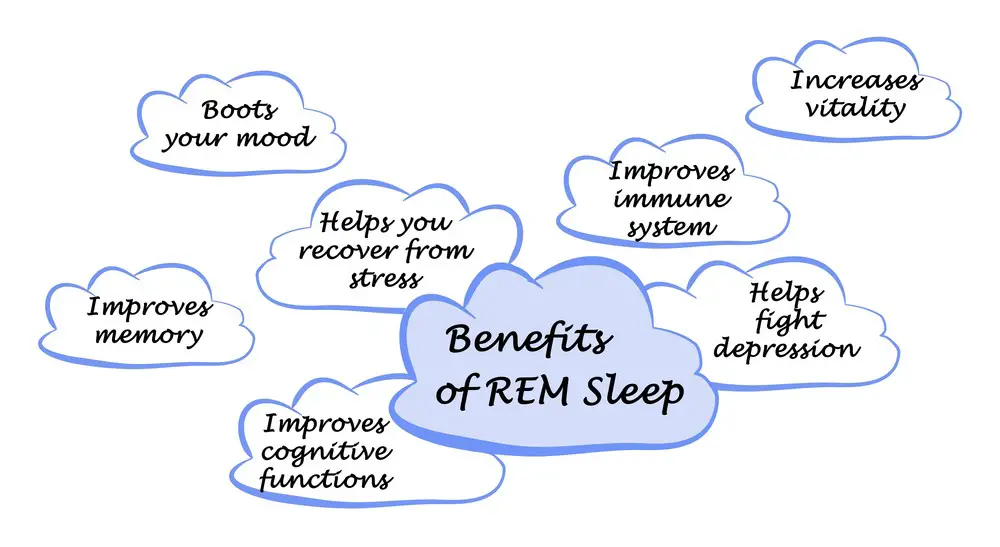 Importance of Sleep Quality
Importance of Sleep Quality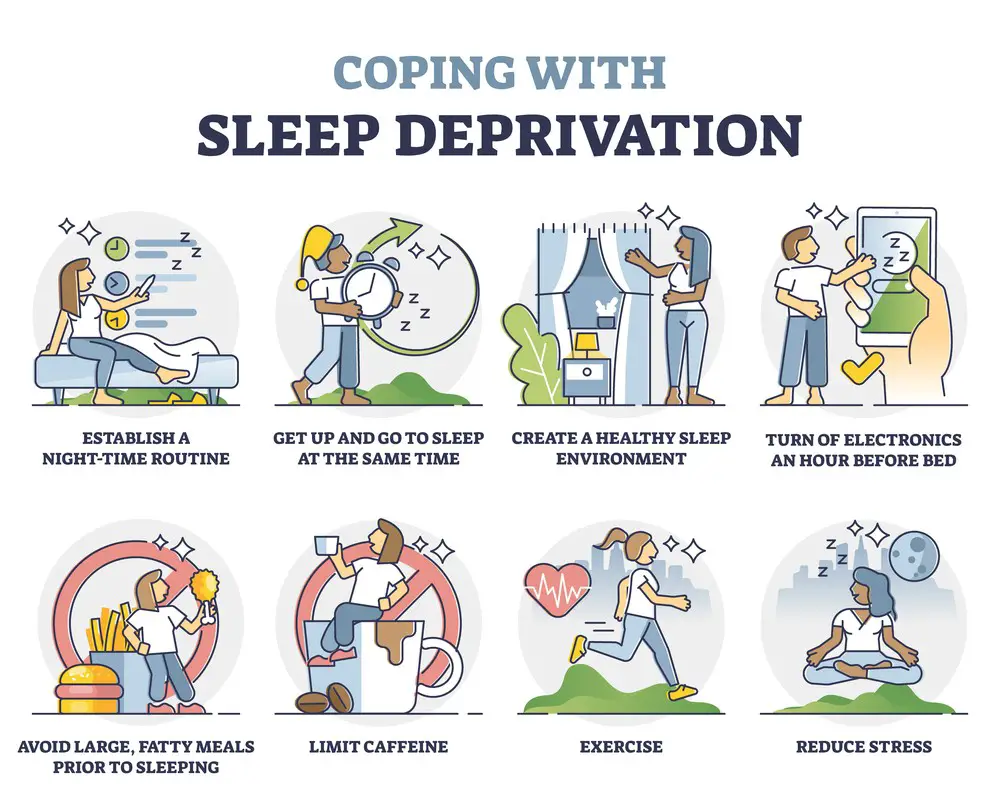 Common Disorders
Common Disorders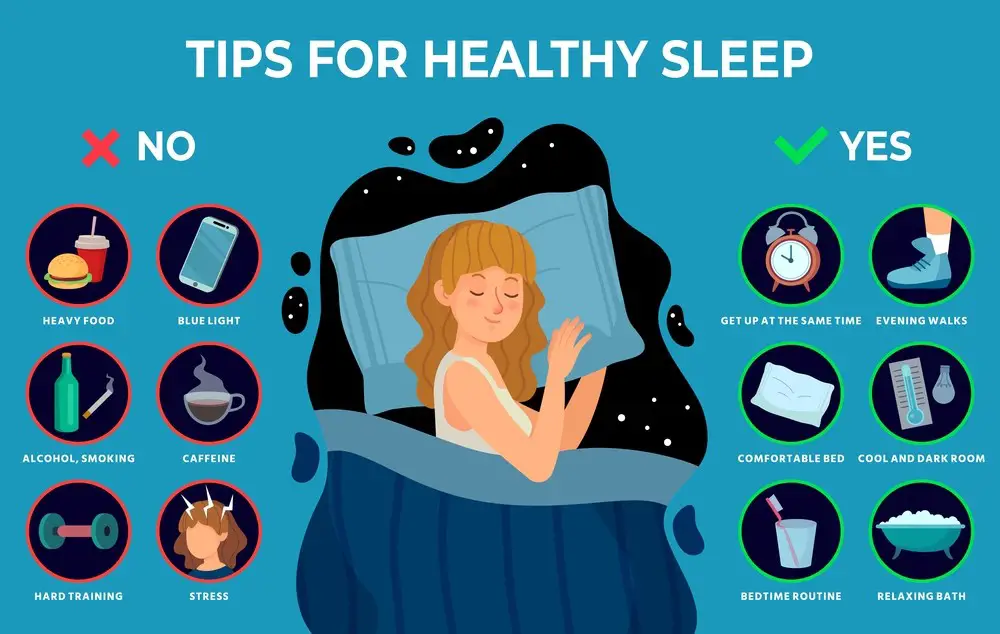 Factors Affecting Sleep
Factors Affecting Sleep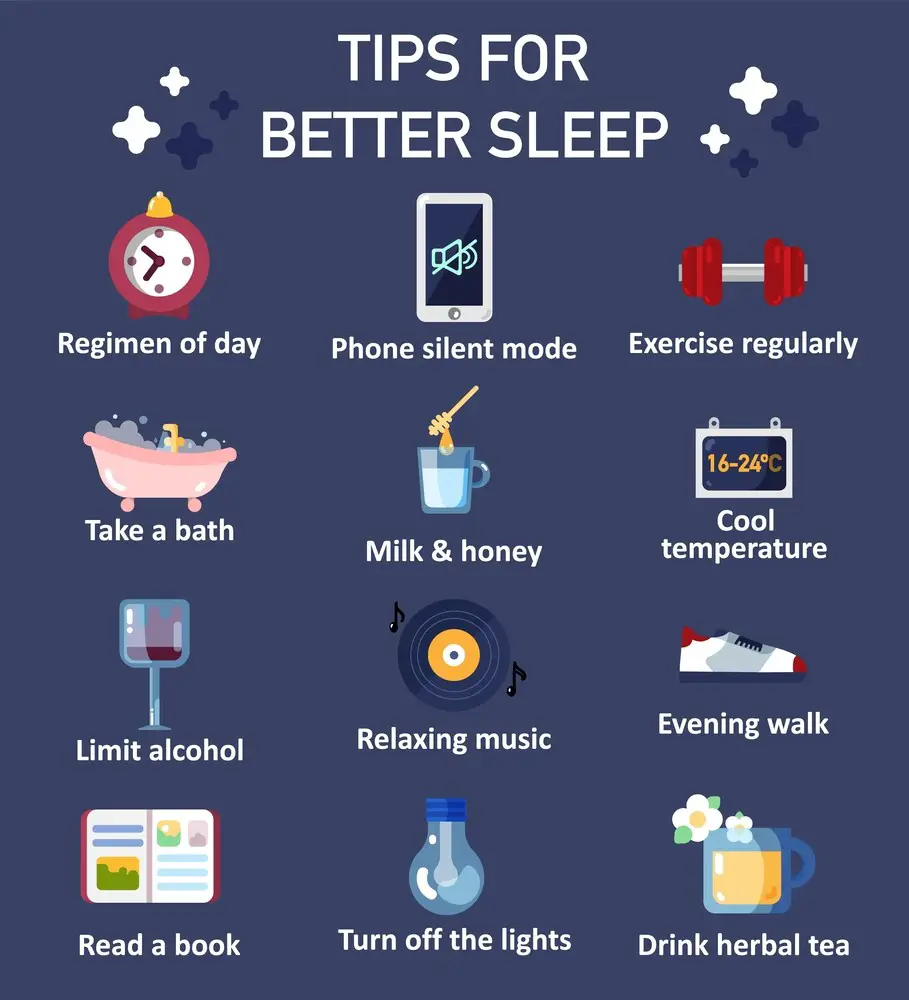 Creating a Sleep-Inducing Routine
Creating a Sleep-Inducing Routine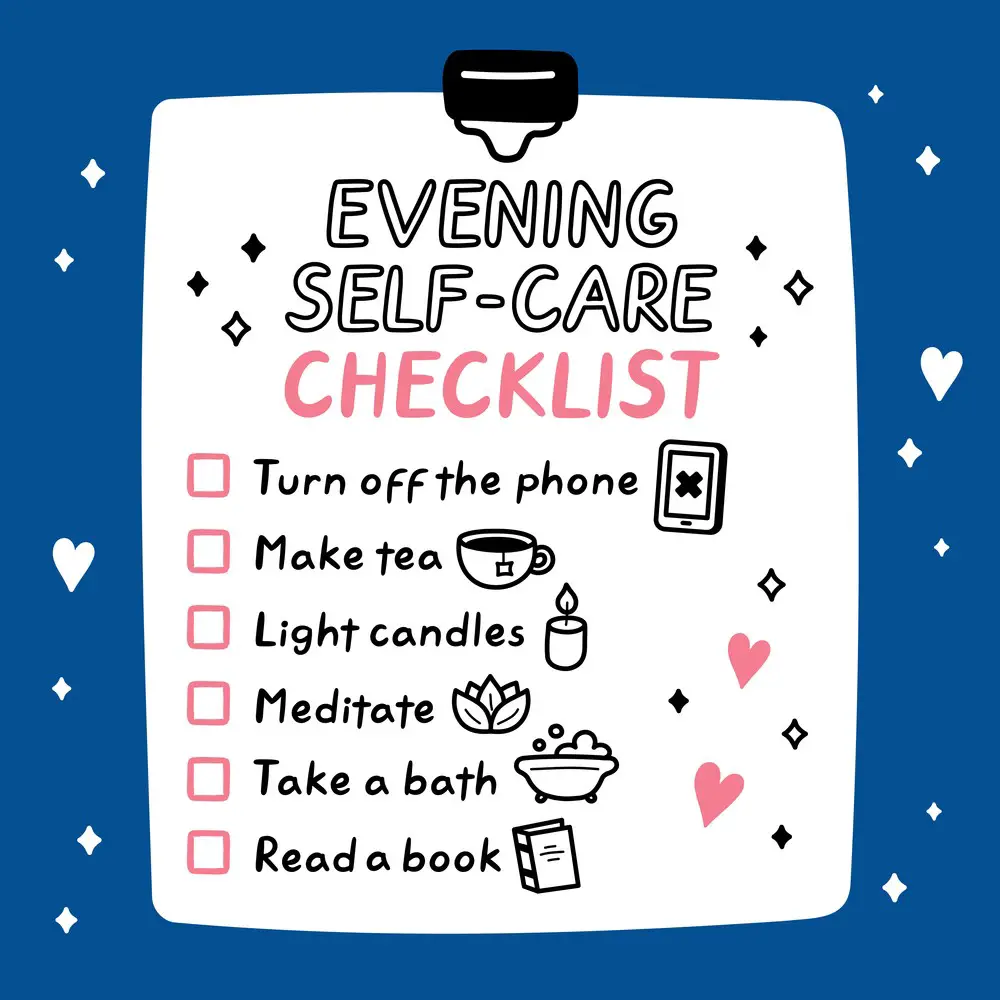 Stress and Anxiety
Stress and Anxiety
